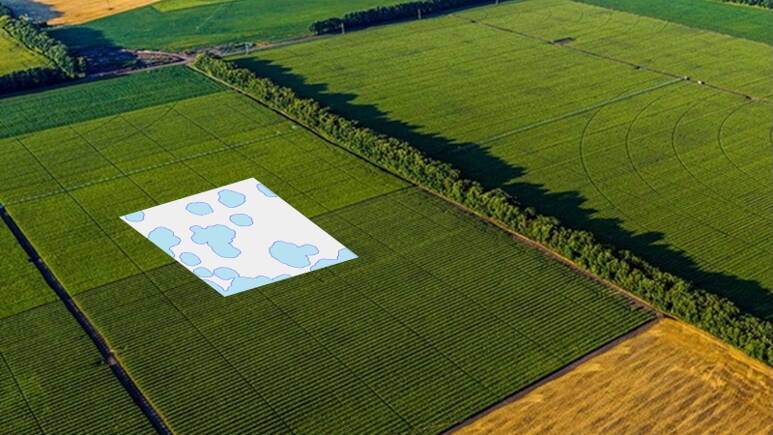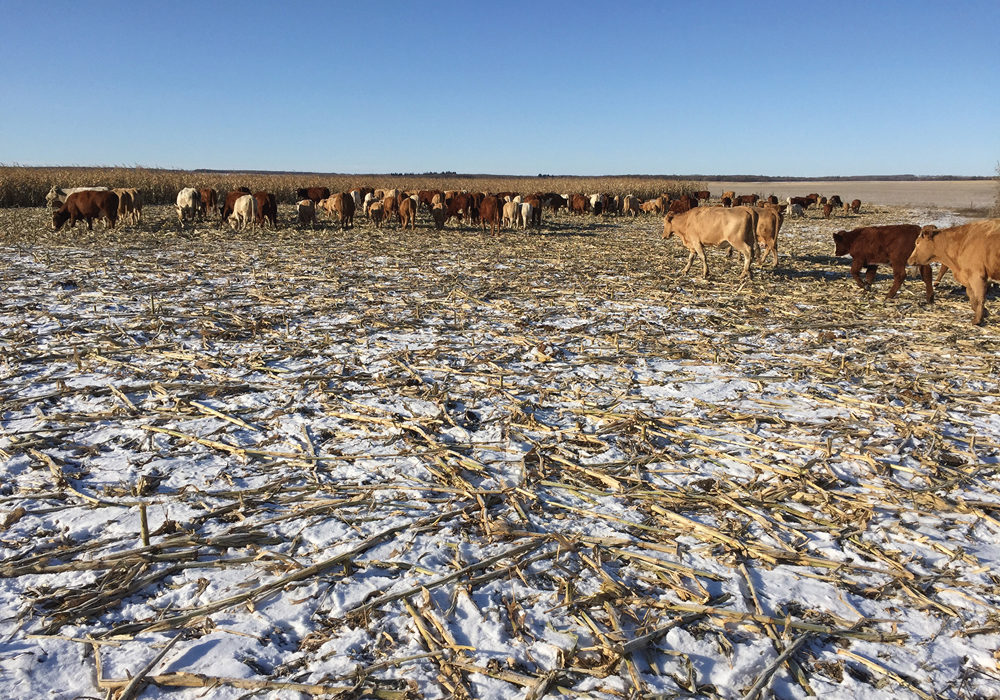The Manitoba Canola Growers Association (MCGA) plans to include electronic voting, as well as a mail-in ballot, during board of directors elections this fall.
“We want to make our organization as democratic as possible and we can only do that if we get more people involved,” MCGA president Chuck Fossay said in an interview Feb. 27.
MCGA members approved a bylaw allowing for electronic and paper ballots at their annual meeting Feb. 16 during CropConnect in Winnipeg.
“We are just trying to make it easier for farmers to participate in the (MCGA directors’) election process,” MCGA president and meeting chair Chuck Fossay told members before voting on the proposed bylaw.
Read Also

Predictive weed mapping, coming to a farm field near you
Geco–Gowan deal taps AI tools, imagery, to forecast weed-patch-prone field zones, so Prairie farms can preemptively target herbicides
The proposed bylaw, which was approved without prompting debate, allows the MCGA’s board, via a resolution, to determine if paper, electronic or both types of ballots will be used.
It’s the current board’s intent to include electronic voting, probably via the Internet, Fossay said. But should it be impractical the board isn’t compelled to do it.
Half the MCGA’s eight-member board is up for election every two years, including 2017. An election is held if more than five people seek the four positions.
Under term rules, incumbent directors Ed Rempel of Starbuck and Brian Chorney of East Selkirk can’t run this year because they both have served the maximum three consecutive, four-year terms.
In the 2015, 2011 and 2009 elections only 14, 16 and 11 per cent of the mail-in ballots were returned. The MCGA’s board hopes electronic voting will be more convenient and therefore result in more members voting.
A second proposed bylaw to allow MCGA’s board to decide the voting system — the current preferential ballot, first past the post or other options — was defeated 12 to seven.
Fossay said if the bylaw change was approved it would give the board the flexibility to select the voting system rather than being locked in by a bylaw.
But several MCGA members and at least one director disagreed.
“I think the board of directors should kindly respect the wishes of the members who previously passed a request that was heavily debated at the time that there be a preferential ballot system put in place,” Deleau farmer Ian Robson said.
“You have a recommendation already on the books asking for preferential ballots.”
Lowe Farm farmer Dean Harder said he opposed allowing the voting method being up to the board of directors.
“I think it could lead to confusion,” he said.
At their 2009 annual meeting in Brandon MCGA members voted in favour of a resolution to use a preferential ballot, also known as a ‘ranked ballot,’ for electing directors. The purpose of the preferential ballot is to ensure those elected have 50 per cent plus one of the votes, rather than just the most votes, which occurs with first-past-the-post system used in federal and provincial government elections.
During past MCGA elections the four candidates with the highest number of votes were elected.
“We realize the second resolution (on the voting system) is a little bit more controversial, but I would like to point out that every time you have an (MCGA) election under the preferential ballot system the preferential ballot hasn’t affected who won,” Fossay said. “In essence whoever got the most votes on the first count, even though he didn’t get 50 per cent plus one, that person was the one who was elected to the board. It appears the preferential ballot if you have several candidates running for one position it does seem to work. However, when you have more than four candidates running for four positions it doesn’t seem to affect the results. We wanted the freedom as a board to make the decision in the future on how the ballots could be cast. We might retain the preferential ballot or… some future board might make the decision, for whatever reason, to go to a different format such as back to first past the post. We just wanted the freedom to do that.”
Hordean farmer John Dueck said the preferential ballot was an important concept when he moved the original resolution to implement it and it still is. It should remain unless there is some “compelling reason to change it,” he said.
MCGA director and Shoal Lake farmer Bill Nicholson also opposed the proposed bylaw change.
“It is my view that the methods of election, whether it is first past the post or preferential or whatever, should be written into the bylaw and approved by members as we currently have,” he said. “This would be a departure from that. I feel it is not the best process.”
But MCGA director Ed Rempel, who opposed the preferential ballot in 2009 arguing it would add cost with little effect on election outcomes, said the preferential ballot “is a confusing system.”
“A lot of people would just like to choose four candidates in no particular order,” Rempel said. “We certainly don’t want to disenfranchise anyone. That is not why we are here.”
Rempel also objected to contentions the organization has problems counting votes, calling for members to approach the debate with “a sense of fairness.”
Growing canola is complex too, countered Dueck. An explanation of how a preferential ballot works can be sent to voters, he added.
Robson also said he opposed leaving the voting method up to the board of directors.
Dauphin farmer and a former MCGA director, Ernie Sirski, also opposed the bylaw.
“It behooves me Mr. Chairman to agree with Mr. Robson and Mr. Harder,” Sirski said. “This was a resolution that was passed at an annual meeting by our members to have the preferential ballot. I agree with the comments of the other two individuals that this would put a lot of power in the hands of the directors before an election so I would have to oppose this resolution.”
















